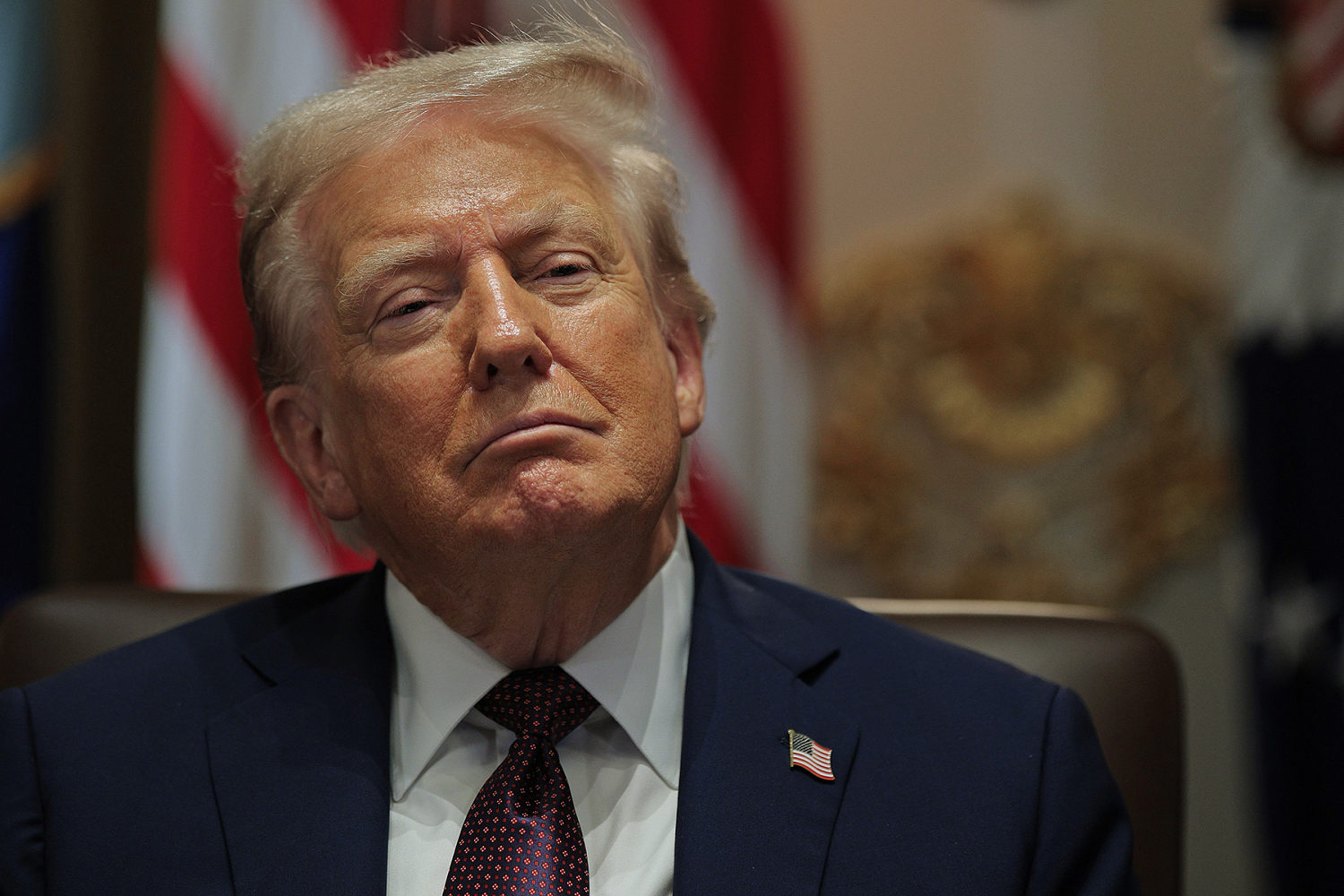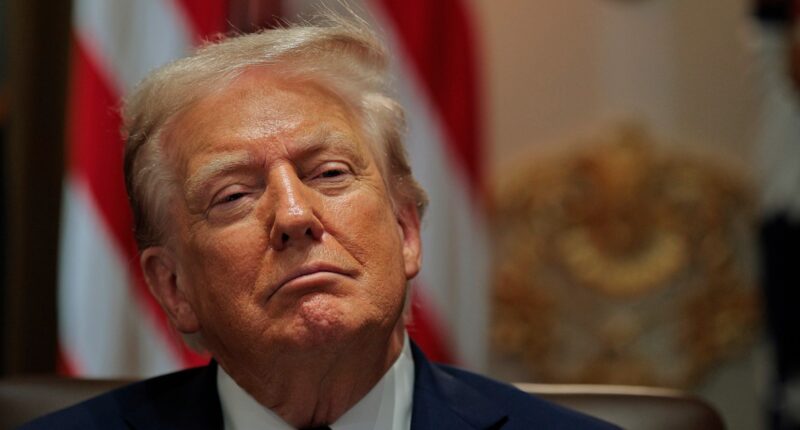Share this @internewscast.com

WASHINGTON — The Supreme Court announced on Tuesday that it would promptly address a significant legal battle regarding President Donald Trump’s tariffs on imports from foreign countries, a key policy of his second term.
At issue is Trump’s power to unilaterally impose tariffs, without congressional approval, under a law reserved for use in times of emergency.
The court accepted two separate cases that cover most of Trump’s tariffs, including one initiated by the Trump administration last week following the U.S. Court of Appeals for the Federal Circuit’s decision on Aug. 29, which stated that the president overstepped his authority. The other case was brought by two educational toy companies challenging the tariffs similarly.
The tariffs, for now, remain in effect while the court decides the case.
Under the streamlined process, the court will hear oral arguments the first week of November and issue a ruling sometime after that.
These cases involve two types of tariffs. The first is “reciprocal” tariffs, varying from 34% for China to a 10% baseline for the rest of the world. The second is a 25% tariff imposed by Trump on certain goods from Canada, China, and Mexico, citing these countries’ failure to control the flow of fentanyl as the reason.
Tariffs that were implemented using other legal authorities, like the 50% tariffs on steel and aluminum applied to all other global trading partners, are not part of the current cases before the Supreme Court.
Even if Trump loses at the Supreme Court, he has other avenues to impose additional tariffs.
Five businesses contesting Trump’s tariffs consented in one case that the Supreme Court should intervene promptly due to the significance of the issue. Additionally, a coalition of 12 states has filed a lawsuit to block these tariffs.
In the second case, the companies had already asked the court to take it upon an expedited basis earlier this year.
The appeals court decided that the International Emergency Economic Powers Act, allowing the president to regulate imports in the event of a national crisis, does not provide the broad powers to impose indefinite global tariffs.
The Constitution specifically states that the power to set tariffs is assigned to Congress.
The high court’s 6-3 conservative majority has frequently ruled in favor of Trump in the first few months of his term, but some legal experts believe it may be more skeptical about his tariff powers.
During the Biden administration, the court was dubious of the White House’s efforts to seek sweeping executive authority using laws that did not specifically address the policy question at issue. In one significant example, the court, endorsing what has been dubbed the “major questions doctrine,” ruled against President Joe Biden’s plan to forgive student loan debt.
V.O.S. Selections Inc., a wine and spirits importer, and Plastic Services and Products, a pipe and fittings company, are among five businesses that sued Trump over his use of the emergency law in one of the cases.
The Court of International Trade initially blocked the tariffs in late May, prompting the Trump administration to appeal.
In the second case, a federal judge in Washington also ruled in favor of the two companies, Learning Resources and hand2mind.

![Guillermo Del Toro Makes The Monster His Own [TIFF 2025]](https://internewscast.com/wp-content/uploads/2025/09/Guillermo-Del-Toro-Makes-The-Monster-His-Own-TIFF-2025-200x110.jpg)











